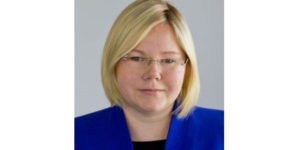Facilitating Culturally Diverse Access to Justice: An Interview With the JCCD’s Carla Wilshire

Of late, questions have been raised around ethnic diversity in the Australian judiciary. A quick perusal of the lists of appointed judges and magistrates in this country reveals that they’re top heavy with Anglo Australian representation.
Over recent decades, there’s been a focus on raising the number of women on the bench, which, according to the Judicial Council of NSW, has seen an increase from the 5 percent of women in the NSW judiciary in 1987 to 34 percent last year.
This rising representation is seen as a positive not only for women working within the legal profession, but also for justice being served in relation to all women. And in light of this, the implications are the opposite for lawyers and community members from non-Anglo backgrounds.
However, there are often more immediate barriers to justice facing people from culturally and linguistically diverse communities in relation to language and cultural assumptions, which is why the Judicial Council on Cultural Diversity has been in operation over recent years.
Australia’s rising diversity
Based on 2016 Census data, 26 percent of the Australian population was born overseas, with one in five of these people having arrived in the country since the start of 2012. And significant rises in Chinese, Indian and Malaysian populations were noted as well.
Over 300 separately identified languages – including those of First Nations peoples – were being spoken in Australian homes. And the data further showed that 21 percent of households spoke a language other than English at home.
Of the overseas-born population that had arrived in this country during the 25 years prior, 11 percent reported not speaking English well or at all. So, for these people accessing a justice system that operates solely in English can be difficult, to say the least.
Responding to diversity
The Judicial Council on Cultural Diversity (JCCD) was established in 2013 by former Australian Chief Justice Robert French, in recognition of the need to assist the nation’s growing populations of culturally and linguistically diverse people.
The JCCD is an advisory body designed to assist courts, judicial officers and administrators in dealing with First Nations peoples, and migrant and refugee populations. Its cultural diversity advocates are made up of judicial and tribunal officials from every level of the court system across the country.
And over its time in operation, the JCCD has developed much-needed national standards for court interpreters, as well as a national framework to improve access to the courts for Aboriginal and Torres Strait Islander women, and migrant and refugee women.
Sydney Criminal Lawyers spoke to Migration Council of Australia CEO Carla Wilshire about some of the issues that people from culturally and linguistically diverse backgrounds can face when accessing the court system, the impact the JCCD is having, and how diversity within systems is essential.
Firstly, Australia is one of the most culturally and linguistically diverse nations on the planet. And as the Judicial Council on Cultural Diversity website points out, this can create challenges in the justice system.
Ms Wilshire, in a practical sense, what are some of the barriers that individuals from culturally and linguistically diverse backgrounds face when accessing justice in this country?
The first barrier is around language, and the capacity to be able to fully understand and participate in the process. And the second barrier can often be perception of the justice system.
Some new arrivals come from a cultural background where the judiciary may not be independent, and rule of law might not be in operation. Understanding the way in which our judicial system works independently is fundamental as well.
The council has been charged with developing tools to address justice issues and initiatives to improve access to the system. What sort of changes has the JCCD implemented over its time in order to improve dealing with the justice system?
In addition to the production of numerous resources to help courts, we’ve also worked to create national standards around translating and interpreting, as well as a framework for access to justice for vulnerable women from migrant, refugee and Aboriginal and Torres Strait Islander backgrounds.
The council also undertakes research and public consolations relating to issues affecting people from culturally and linguistically diverse backgrounds. Are there some unexpected or less obvious issues that the JCCD has pinpointed when carrying out its inquiries?
One of the issues is around people getting information about the judicial system. One of the findings was that people often get their information from family members and from friends, rather than authoritative sources, and this can affect how they see and interact with the justice system.
Another finding was particularly for vulnerable women around their capacity to be listened to within the courtroom. Issues that were arising were to do with intimidation from other family members, or sometimes interpreters who were reprimanding these women in the courtroom.
So, on occasion – but not often – there was a significant issue with interpreting in courts.
So, who were the interpreters reprimanding?
The victim. It occasionally came up in consultations that someone would raise an issue around an interpreter suggesting that they shouldn’t be involving the courts in their matter, and that they were shameful for bringing it forward.
This was by no means all interpreters, and for the most part they were interpreters that were not accredited.
How did the council go about addressing this issue?
As part of the standards, the courts have very much looked at the role of interpreters and their standing in the court and strengthened the ability of the court to be able to report on any issues around interpreting.
There’s quite a lot that’s in the national standards that deal with this, both in terms of the obligations of the interpreter and also the capacity of the courts to be able to rectify issues.
The JCCD carries out work not only in relation to migrant and refugee communities, but also with First Nations peoples. It’s well known that the relationship between Aboriginal and Torres Strait Islander communities and the justice system has been problematic.
How has the council been working to assist Indigenous people in dealing with the system?
We’ve worked very closely with Aboriginal and Torres Strait Islander communities in the design of standards around translating and interpreting, as well as within the framework for vulnerable women who seek justice.
One of the things that we’re in the process of doing at the moment is finalising the design of a community engagement strategy that the courts can use to engage with communities in which they operate within.
The Australian judiciary is predominantly made up of Anglo Australians. Do you think there’s a need for more diversity within the judiciary so as to have the nation’s makeup more adequately represented at that level?
While the JCCD obviously doesn’t have authority over judicial appointments, one thing that I would say, as the CEO of the Migration Council, is that diversity within all our systems is critically important: mirroring the communities in which systems operate is fundamental.
As you mentioned, you’re the CEO of the Migration Council of Australia, which supports the JCCD. Can you tell us what the function of the MCA is?
The MCA is a national body that looks after policy and research in relation to migration and settlement of both migrants and refugees.
And lastly, the JCCD is a relatively new initiative. Ms Wilshire, what would you say it’s achieved so far?
What we’ve seen is there’s been an increasing emphasis within the court system, and very strong leadership, around wanting to look at how to make sure the court system is fully accessible no matter what the barriers are that people face, whether they’re linguistic, cultural, or assumptions around how the court system works.







